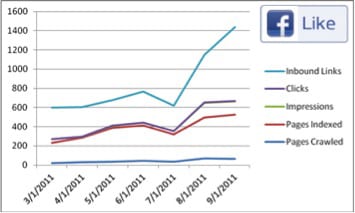![]() Have you been curious about Google+? Have you noticed that when you search for topics on Google the results you receive seem targeted to you – both by location and interest?
Have you been curious about Google+? Have you noticed that when you search for topics on Google the results you receive seem targeted to you – both by location and interest?
There is a definite reason for that. Google’s new social media platform, Google+ is impacting your search results. So, what does this mean for you and the client sites you manage?
Are you looking for Information Online? It’s all about you
Did you know that the way content is displayed to you (the searcher) in search engine results and social media platforms is now 100% personalized?
In fact, both search engines and social media platforms adjust the content based on the information that you have provided to them. They use the following factors to personalize your information:
- Your geographical location (via GPS if you’re on a phone, or server location if on a desktop)
- The language you use
- Your previous search history
- The intent of your search
- The information in your personal profile
- Your social media connections
- Which social media connections (friends) you interact with the most
- What content you click on
- What content you don’t click on
- What content you share
Check out what Google uses to personalize their search to you by looking at your Google dashboard.
Social Media Engagement is Critical to Being Found Online
No longer can brands create web content without a comprehensive social engagement plan that leverages this personalization because social media activity is now 100% integrated into organic search results. Bing’s search engine results are influenced by Facebook’s “Like “ button, and Twitter activity, while Google’s organic search results are 100% influenced by your Google + activity, your contacts in Gmail, and your previous search history with Google. Here’s an interview with both search engines admitting that they use social signals to personalize their search results.
Don’t believe us? Below is a chart from one of Ketchum’s client websites. You can see that for one month−during a lull in promotion−traffic to the site spiked. All they did was install the Facebook Like button:
Today, an effective digital strategy must fully integrate all social media platforms. For online content to be optimally visible on social platforms or organic search, it will need to be commented on, tweeted, Liked, and Google +’ed.
Stay tuned for our upcoming post about Google + and Facebook this week to learn more about how to leverage these platforms to get in front of your target audience.


